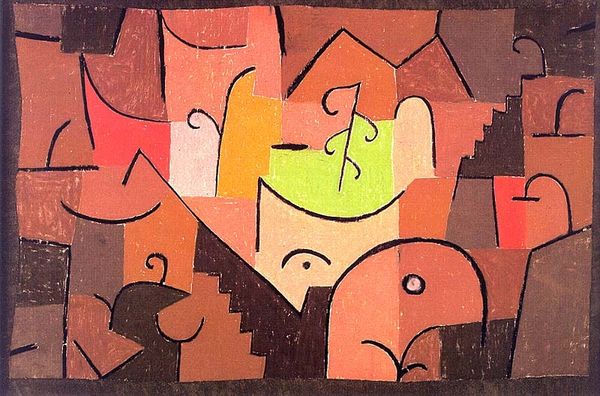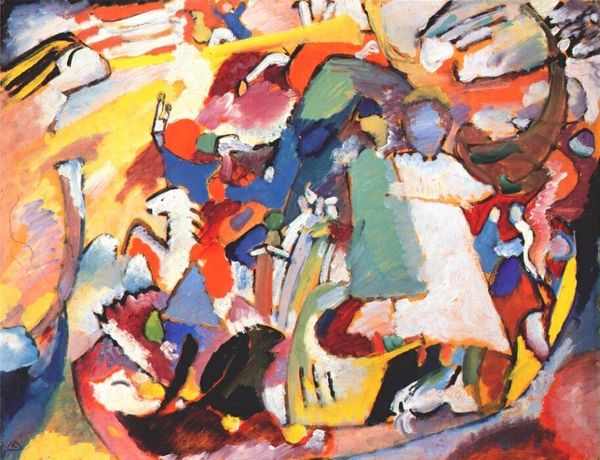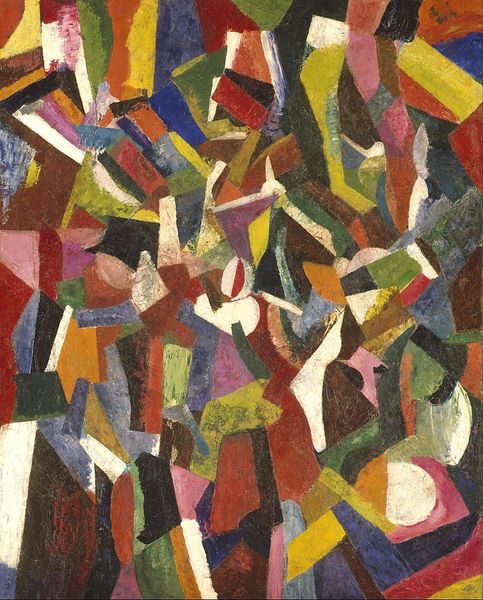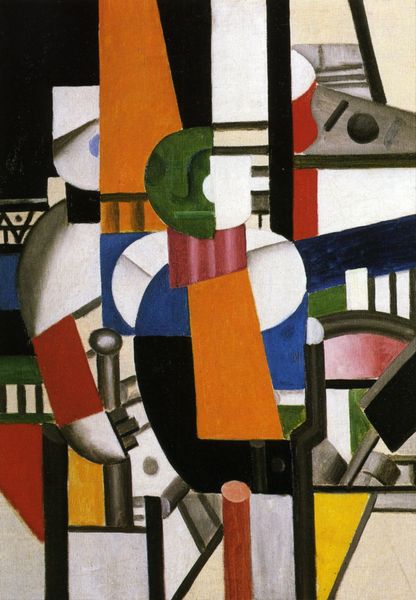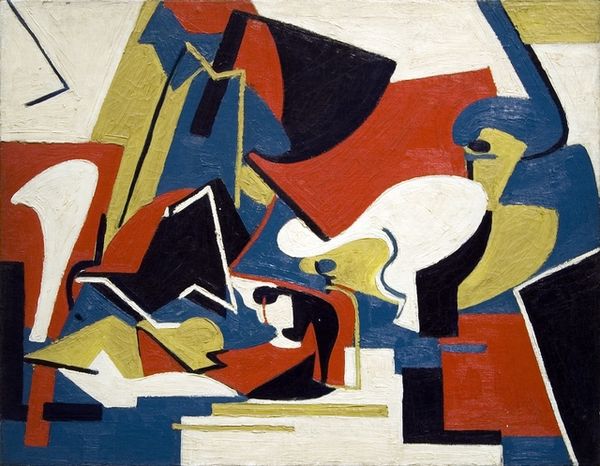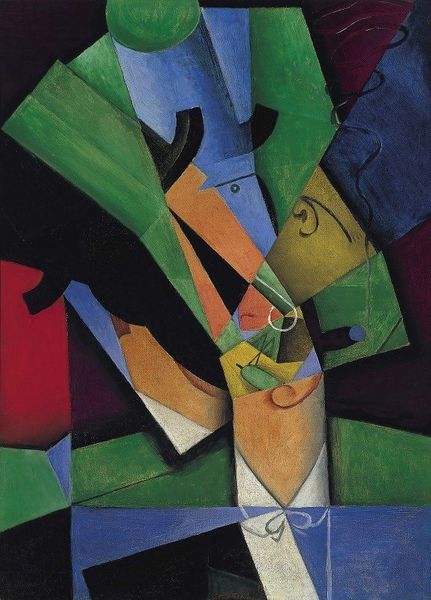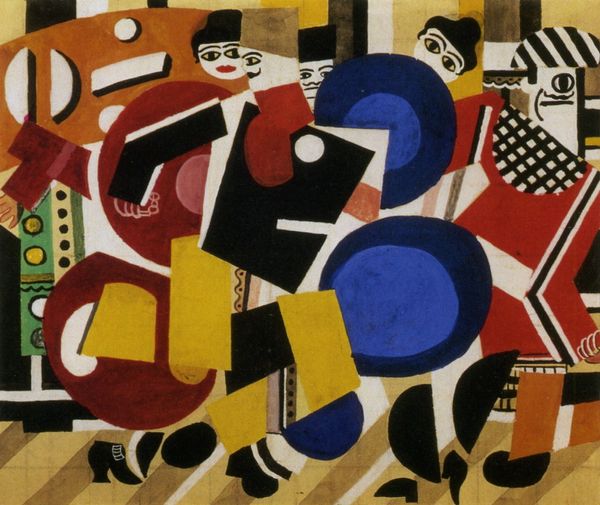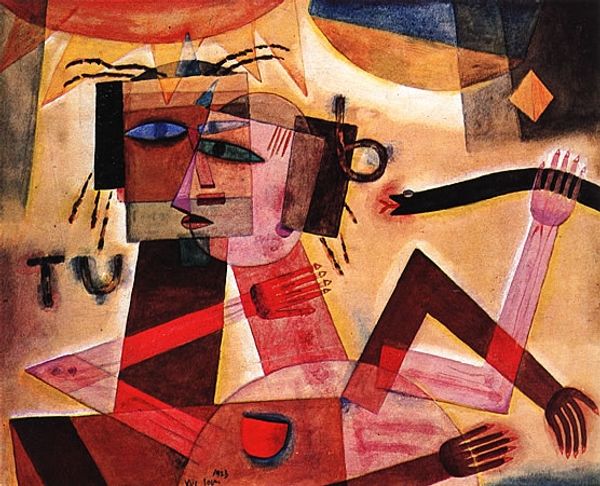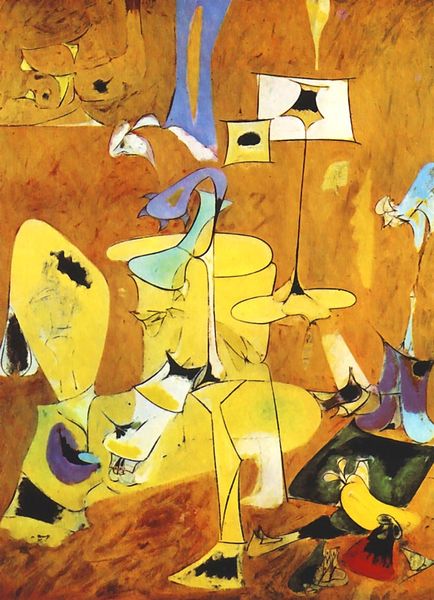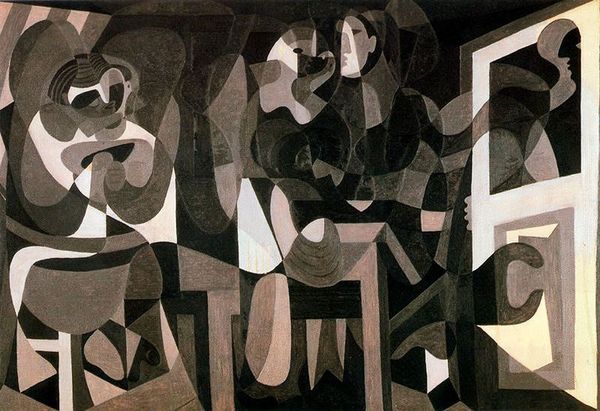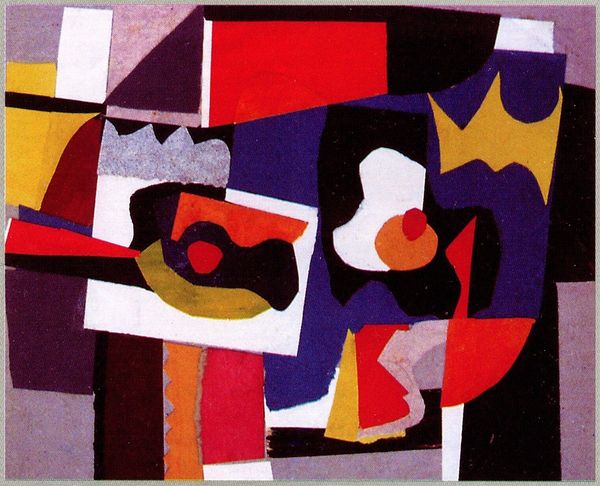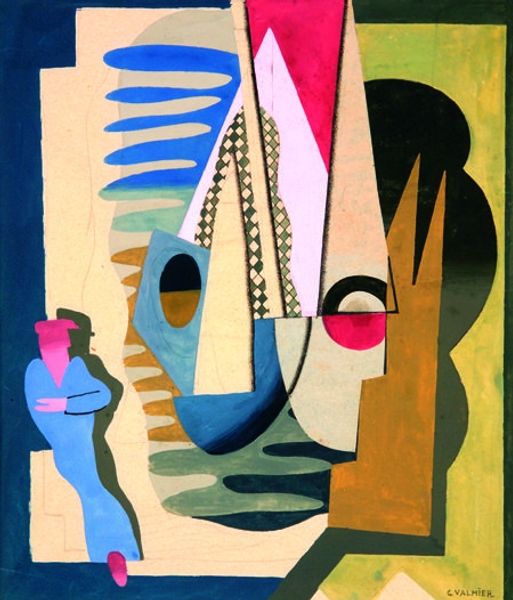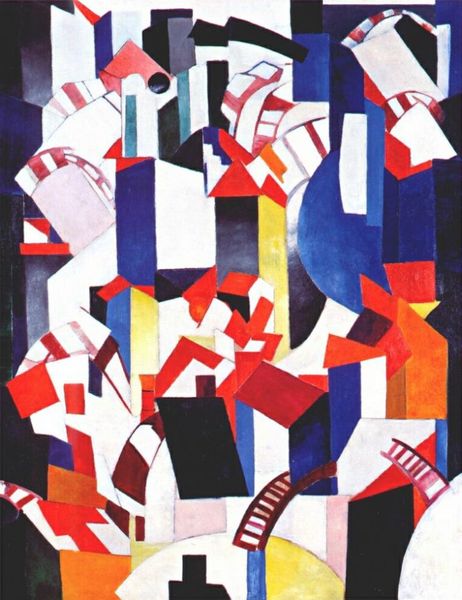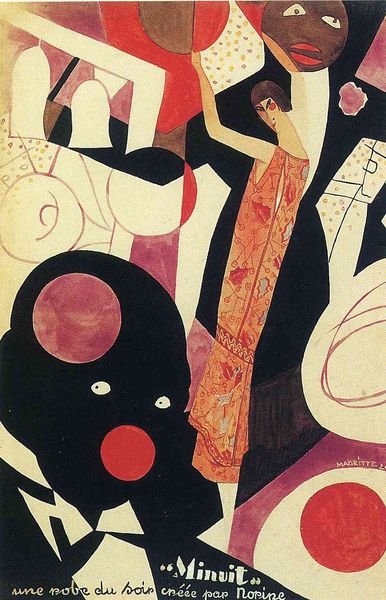
painting, oil-paint
#
cubism
#
abstract painting
#
painting
#
oil-paint
#
pop art
#
geometric
#
abstraction
#
cityscape
#
modernism
Copyright: Public domain US
Curator: Magnelli's "The Cafe", painted in 1914 using oil paint, assaults the senses with vibrant colors and disorienting geometric shapes. It feels like stepping into a fever dream set in a bistro. What leaps out at you? Editor: A visual symphony of urban discord! It's as though the archetypal café has been deconstructed, leaving behind only the symbols and color codes – an umbrella form signals shelter, while stark contrasts point to the alienation so very modern at that time. Curator: It certainly grabs you, doesn't it? Look at how Magnelli breaks down the scene into its component parts – figures, tables, architecture. It's almost like he's showing us not the cafe itself, but the very idea of "cafe." Editor: Indeed, he presents the café not as a specific location, but as an archetype in our collective consciousness, much like the shadow of a forgotten urban myth retold and re-experienced across eras. Notice how the stark color fields evoke emotional states beyond literal representation? Curator: Right! And think about what's left out. No realistic detail to anchor us. Is this anonymity intentional, inviting each of us to project our personal cafe experience onto the scene? Editor: Precisely! This radical approach shifts perception of commonplace environments, embedding layers of symbolic depth; tables echo classical alters, customers appear as statues in their own private realities... Curator: It feels a little lonely. And is that figure under the yellow umbrella shielding themselves? It's making me think of isolation, even in public spaces. What do you read in it? Editor: Ah, that's compelling: yellow historically embodies intellectual intuition as much as protection, hinting at the patron not just physically guarded but possibly deep in personal thought, removed. Loneliness emerges. It reminds us, then, of how we gather, yet often remain separate, mediated by symbols... Curator: Ultimately, Magnelli isn't offering a picture-perfect snapshot. Instead, "The Cafe" becomes a window into something universal and deeply internal. Editor: Agreed. It serves not only as an urban observation but as a visual portal into the emotional landscape defining the communal urban existence— a vibrant snapshot, abstracted for all time.
Comments
No comments
Be the first to comment and join the conversation on the ultimate creative platform.
